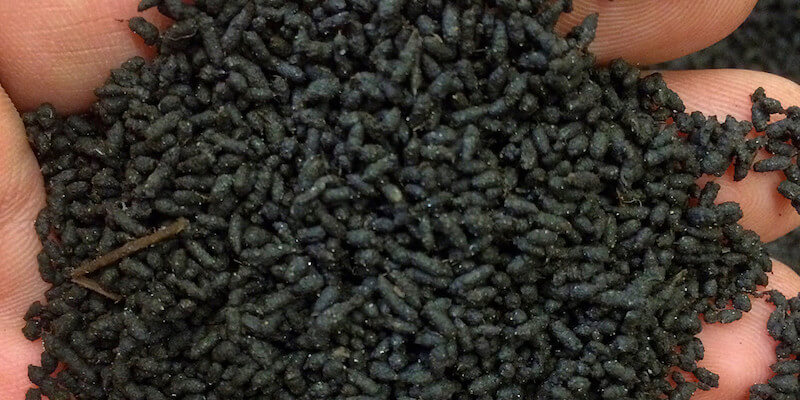
Worm castings, also known as worm poop, are a nutrient-rich organic fertilizer that has become increasingly popular among gardeners and farmers in recent years. In this article, we will discuss what worm castings are, how they benefit soil and plants, and the process of vermicomposting. We will also cover the types of worm casting bedding, the nitrogen content of worm castings, and whether some worm castings are better than others.
Worm castings are the excrement of earthworms that have consumed organic matter. They are a rich, dark, soil-like substance that is filled with beneficial microorganisms and nutrients that are essential for plant growth. Worm castings are produced through a process called vermicomposting, which involves feeding organic material to earthworms and allowing them to break it down and excrete it as castings.
Worm castings are a powerful organic fertilizer that can be used in a variety of applications, including:
Worm castings are an excellent source of beneficial microorganisms that are essential for healthy soil biology. These microorganisms help to break down organic matter, release nutrients into the soil, and promote healthy plant growth. Worm castings can also help to increase the diversity of microorganisms in the soil, which can help to improve soil health and resilience.
Vermicomposting is the process of using earthworms to break down organic matter and turn it into nutrient-rich compost. The process involves feeding organic material to earthworms, who consume and break it down into castings. Vermicomposting can be done on a small scale, such as in a backyard composting bin, or on a larger scale, such as in a commercial worm farm.

Red wigglers are a type of earthworm that is commonly used in vermicomposting due to their high rate of reproduction and ability to process organic material quickly. They are well-suited for small-scale vermicomposting systems such as composting bins or worm farms.
Coco coir is a sustainable alternative to peat moss that is often used as a bedding material for worms in vermicomposting systems. It is made from the fibers of coconut husks and is highly absorbent, making it an excellent choice for creating a comfortable and hospitable environment for worms.
Humus is a type of organic matter that forms in soil as a result of the decomposition of plant and animal material by earthworms and other microorganisms. It is a complex mixture of organic compounds, including lignin, cellulose, proteins, and sugars, that has been broken down into smaller, more stable compounds. There are several types of humus, which differ in their chemical composition and properties.
Mor humus: Mor humus is a type of humus that is formed from the decomposition of large plant material, such as leaves and twigs. It is typically found in forest soils and has a high nutrient content.
Mull humus: Mull humus is a type of humus that is formed from the decomposition of smaller plant material, such as grass and herbaceous plants. It is typically found in grasslands and agricultural soils and has a lower nutrient content than mor humus.
Moder humus: Moder humus is a type of humus that is formed from the decomposition of a mixture of plant and animal material. It is typically found in soils that have a moderate amount of organic matter.
Humus is found in the top layer of soil, known as the A horizon, where it plays a crucial role in soil fertility and nutrient cycling. It helps to improve soil structure, increase water-holding capacity, and provide a source of nutrients for plants. Humus is also important for supporting soil biology, as it provides a habitat for beneficial microorganisms and helps to maintain soil pH. Overall, humus is an essential component of healthy soil and plays a crucial role in supporting plant growth and ecosystem function.
Castings tea is a liquid fertilizer made by steeping worm castings in water. It is a highly concentrated fertilizer that can be diluted and applied directly to plants or added to soil to boost its nutrient content.
Worm casting bedding is the material used to create a comfortable and hospitable environment for worms in vermicomposting systems. There are a variety of materials that can be used as worm casting bedding, including shredded paper, cardboard, leaves, and coconut coir. The bedding should be moistened before adding the worms to ensure that they have a suitable environment to live in. Worm casting bedding not only provides a comfortable living space for the worms, but it also serves as a food source for them as it breaks down over time. As the worms consume the bedding, they excrete it as nutrient-rich castings, which can be harvested and used as an organic fertilizer for plants. It is important to regularly maintain the bedding in vermicomposting systems to ensure that it remains moist and that the worms have an adequate supply of food. The type of bedding used can also have an impact on the quality of the resulting castings, as different materials can have different nutrient profiles and textures. Overall, worm casting bedding is an essential component of a healthy vermicomposting system and plays a crucial role in producing high-quality worm castings.
Article Posted Oct 9, 2023